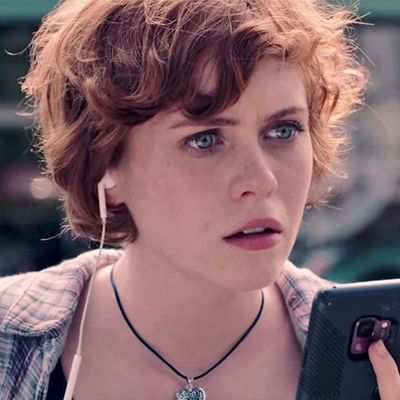
As a pop-cultural phenomenon, Nancy Drew has proven to be both resilient and adaptable — more, it seems, than her fellow child detectives the Hardy Boys, or my beloved Three Investigators. She’s had film series, multiple TV iterations, and extremely popular video games, all the while continuing to sell millions of books. And her image and identity have over the years served as a canvas against which our culture reflects its priorities. “Like the thirties starlets programmed by the Hollywood star system to radiate glamour, power, and searing perfection, Nancy is a fundamentally collaborative project who embodies distinct, often contradictory visions for how a super-girl should look and behave,” wrote Isabel Ortiz in the Paris Review a few years ago. Maybe that’s why there have been no less than three attempts to turn her into a TV series over the past five years — each trying to redefine Nancy and her milieu in a slightly more contemporary way.
At first, you might worry that a new, very loose adaptation of one of the Titian-haired sleuth’s best-known titles, Nancy Drew and the Hidden Staircase (it was published in 1930, and there was even a film of it made back in 1938), might collapse under the weight of such demands. The opening scenes give us extended shots of Nancy (It’s Sophia Lillis) skateboarding down the street of a small town to the accompaniment of Emily Bear’s pop song “More Than Just a Girl” — all so drawn out that it’s hard not to feel that the filmmakers are insistently announcing, “See!? This is not your grandmother’s Nancy Drew!” Which, fair: The character has obviously been reimagined a bit for 2019. Now, the story starts off with Nancy and her friends George (played by Zoe Renee) and Bess (Mackenzie Graham) using various disguises and technological know-how to exact revenge (or, as Nancy terms it, “restorative justice”) on a preening, entitled jock who posted a doctored, humiliating video of Bess online.
But soon the Nancy Drew part of the Nancy Drew story kicks in. The actual mystery in Hidden Staircase isn’t particularly gripping; it’s a kind of haunted-house throwback that brings some lightly gothic flair to the otherwise contemporary setting. Nancy offers to help out local eccentric Flora (Linda Lavin, a welcome face to those of us who grew up watching Alice) who has been hearing and seeing mysterious things in her house. Flora is worried she might have been visited by the ghosts of two lovers who were allegedly buried alive in the walls of the building decades ago, but Nancy, ever the materialist, is convinced there’s a perfectly reasonable explanation. (And since the film has populated its small-town story with only one other subplot, it’s not hard to guess what’s going on.) Lavin has fun portraying an aging free spirit who’s seen her share of adventures; she talks of facing down communism and hints at a lifetime of revolving-door lovers. But while it may be gauche to suggest that a kids’ film should explore such ideas further, it is a bit deflating that nothing is done with this engaging character’s apparently eventful past.
Hidden Staircase is pretty simple stuff: The dialogue is direct, the themes transparent, the plot points comfortably telegraphed, with everything conveyed via unfussy compositions and basic close-ups. The director, Katt Shea, is best known for such decidedly unwholesome but sordidly fun works as Poison Ivy and The Rage: Carrie 2. She’s been working in the TV movie salt mines for some time, and it’s nice to see her name on a theatrical feature again, but stylistically the film feels anonymous. (Despite some of its more au courant shenanigans, if you told me Hidden Staircase had been originally produced for TV in the late 1990s, I might believe you.)
Even so, it’s a charming movie, with charming characters. Lillis is ideally cast as Nancy, often cheerfully undercutting some of her character’s more precocious proclamations, cracking smiles and reminding us that she’s still a kid. She ably walks a fine line between girl power and ain’t-I-a-stinker levity. Nancy Drew and the Hidden Staircase won’t set the world on fire, and it probably won’t start any major new movie franchises. But it doesn’t need to. Turning kids’ stories into bloated, adult-friendly blockbusters has become such a tiresome proposition of late that it’s refreshing to see a film that gets by on simplicity, sweetness, and light.


